ACF/CCF and the DofE Award Scheme

WHAT IS THE DUKE OF EDINBURGH AWARD SCHEME & WHY SHOULD THE ACF/CCF GET INVOLVED?
The Duke of Edinburgh Award Scheme, now known officially as The DofE, is a well known established award international programme of personal development leading to a prestigious award for those who complete the challenge. It is an excellent addition to your cadet life.
To take part in the award you have to be aged 14 – 24, to able to demonstrate commitment and be up for a challenge.
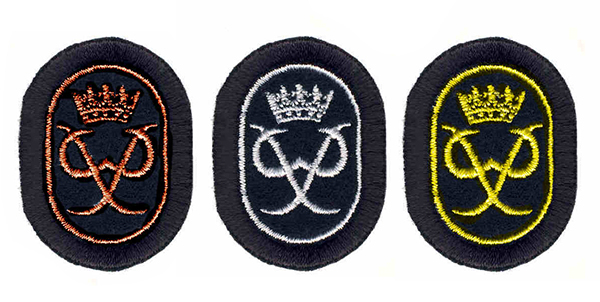
The latest ACF/CCF DofE Award Scheme Badges
There are three levels of the award, Bronze Silver and Gold; you can start at Bronze and work through all three to get the hat trick or you can be ‘direct entrant’ and start at either silver or gold, depending on whether you are old enough.
At each level there are four sections, Volunteering, Physical, Skill and Expedition (with an addition Residential section at Gold). You achieve your Award by completing a personal programme of activities in these four sections (five if you're going for Gold)
You'll find yourself helping people or the community, getting fitter, developing skills, going on an expedition and taking part in a residential activity (Gold only). The best bit is you can choose what to do in each of the sections and you may also find that some of the activities you do as a cadet will already count towards a section of your award.
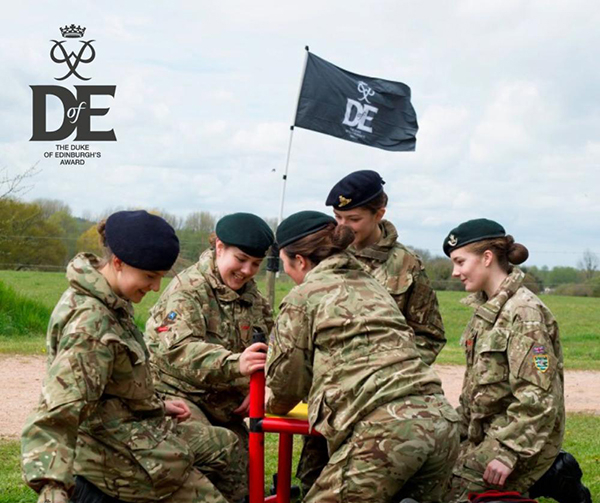
WHY DO YOUR DOFE?
You’ll enjoy loads of new experiences, discover talents you never thought you had, challenge yourself and meet loads of people just like you. Plus you’ll do things you love and get a kick out of.
Then there’s all the other stuff…
- achieving an Award will give you skills, confidence and a view on life that everyone is looking for, from employers to colleges and universities.
- you're getting recognised for doing things you want to do (and may even be doing already).
- you’ll make a difference to other people’s lives and your community, be fitter and healthier, make new friends and have memories to last you a lifetime
TIMESCALES
BRONZE - Minimum age 14.
You must participate in your activities for an average of around and hour aweek, spread evenly throughout the following time

SILVER - AGE 15+

GOLD. AGE 16+
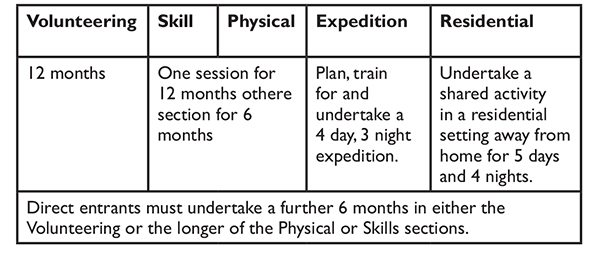
DETAILS ON SECTIONS
There are so many activities that can count towards your award, it can be difficult to know what to choose. It is also important to make sure that they go into the correct section. Have a look on the DofE website www.dofe. org, where there are lots of examples. It is impossible to list all the options, so if in doubt, talk to your leader if you get stuck. Once you have decided what to do, you set yourself goals and upload this information onto your eDofE account (see below).
Here a few things for you to bear in mind when you are deciding what you are going to do,
- Do you want to try something new?
- Is there something I am already doing that will count?
- Pick something you'll enjoy - it'll make it easier to stick at it!
- How much does the activity cost?
- Where can I do an activity?
- How long do I have to do it? Check your timescales and make sure yo can do the activity for that long.
- Do you need insurance? Is the activity safe?
- Does it fit in the right section?
VOLUNTEERING
Volunteering is about making the different to other people’s lives
You can
- Help people,
- Take part in community action and or raise awareness,
- Coach, teach or lead activities,
- Work with the environment and or with animals,
- Help a charity or community organisation.
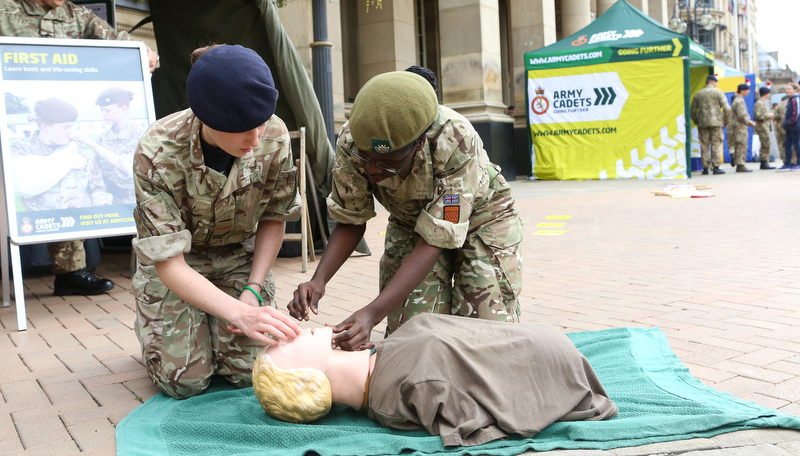
Picture by Shaun Fellows / Shine Pix The Army Cadet Force is holding an interactive event in Victoria Square to mark the launch of a series of Open Week events taking place at up to 133 Cadet Detachments across the Midlands
SKILL
Develop your practical and social skills through personal interests.
Activities can fall into the following categories.
- Ceremonial Drill
- Sports Leadership
- First Aid
- Navigation
- Military History
- Marksmanship
- Media and Communication
- Natural World
- Games and Certain Sports
PHYSICAL
Feel healthier and have fun – aim to improve your fitness either through team or individual sports Activities can fall into the following categories.
- Rugby
- Football
- Dance
- Fitness
- Extreme Sports
- Martial Arts
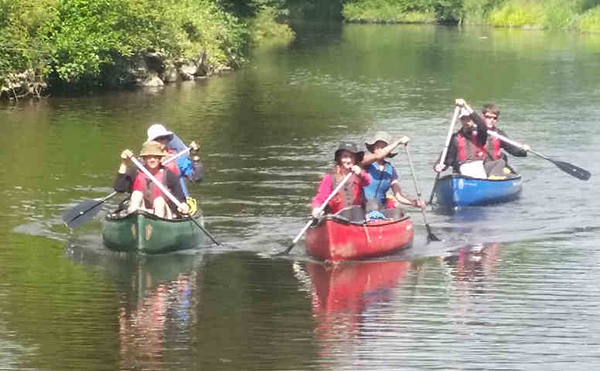
EXPEDITION
You can do your expedition via different modes of travel, on foot, by bicycle, by boat, canoe or kayak, by wheelchair or on horseback. There needs to be between four and seven of you in an expedition team, (eight if you’ve chosen to travel by tandem canoe or bike).
With your team, you will need to plan, decide on your location and do lots of fun training to make sure you’re fully prepared and know what you’re doing! You must do the correct training for your level and mode of travel, to meet both DofE and ACF requirements. Speak to your leader for details.
Once you’ve done the preparation, you are ready to go out and do a practice expedition, (all expeditions must be done through a licenced organisation (LO), of which the ACFA is one; of course, you must not go out on an expedition without your leaders supervising the venture. You have to do a minimum of one practice expedition, but you should do as many as you need until you feel ready for your assessment.
When you are ready, you will progress to your qualifying expedition, an unaccompanied, self-reliant expedition with an agreed aim. Don’t forget to check that it meets the correct time duration.
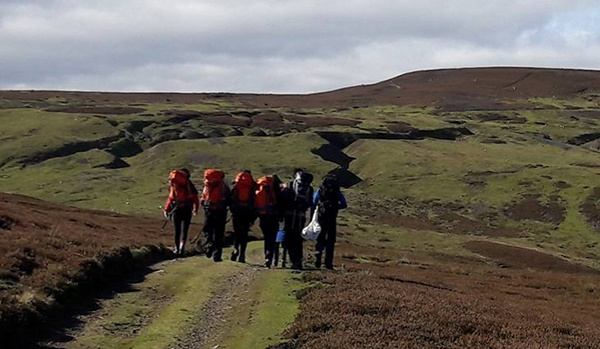

The time associated with overnight accommodation and catering is additional to the minimum daytime hours of planned activity.
You will be assessed by a DofE accredited assessor who will check to see if you have met the 20 conditions.
- Your expedition must be by your own physical effort, without any motorised or outside assistance.
- Your expedition must be unaccompanied and self-sufficient.
- Your expeditions must be supervised by an adult who is able to accept responsibility for the safety of you and your team.
- Your expedition must have an aim.
- You must be properly equipped for your expedition.
- You must have completed the required training and practice expeditions
- You must undertake at least one practice expedition at each level of the programme. You should do this in the same mode of travel and in a similar environment to the qualifying expedition.
- You and your team must plan and organise your expedition.
- You must be assessed by an approved accredited Assessor to the DofE.
- There must be between four and seven people in your team (eight people may be in a team for modes of travel which are tandem).
- You must be within the qualifying age of the DofE programme level.
- All the people in your team must be at the same level of assessment.
- Your team must not include anyone who has completed the same or higher level DofE expedition
- Your overnight accommodation should be camping.
- Your expedition must be the minimum number of days required for your DofE level.
- Your expedition should normally take place between the end of March and the end of October.
- Your expedition should be in the recommended environment for your DofE level.
- You must do the minimum hours of planned daily activity for your DofE level.
- You should cook and eat a substantial meal each day.
- You must create and deliver a presentation after your expedition to complete the section.
Don't forget that all your team must meet these conditions! If you or one of your team has individual needs that mean one or more of the above conditions cannot be met, then you can apply for a variation to these conditions to enable you or them to participate in their DofE expedition. Your DofE Leader/Supervisor will help advise you if this is the case. Finally after your expedition you’ll give a presentation about your experiences and your achievements to your Supervisor, Assessor or another adult.
To successfully complete your expedition section you will need an adult who will take on the role of Supervisor, who will work with your team to organise your training and help you plan your expedition; talk to your detachment commander or your DofE Officer.
RESIDENTIAL (GOLD ONLY)
This involves spending a minimum of 5 days and 4 nights away from home on a shared activity with people you’ve never met before. You could build on a talent you’ve developed in another section, learn something completely new on an intensive course or do something to help others. Examples of a
residential include,
- Be a leader at a kids summer camp,
- Take part in an environmental or conservation project,
- Assisting at a overseas summer camp,
- Learn how to dry stone wall,
- Study the bird population at a RSPB nature reserve,
- Go to a university camp,
Attend an adventure activity week either at home or abroad
…the list goes on & on.
ASSESSORS
For each activity you choose, you have to collect evidence and ask
somebody to assess you. If somebody coaches or teaches you then
getting them to assess you is straightforward. Again if you are part of an organisation you can ask a leader/responsible adult to assess you. If you get stuck for an assessor you can ask one of your detachment officers, you will need to prove to them that you have completed the goals that you set.
YOU’VE DECIDED TO DO DOFE – SO WHAT NEXT?
Talk to your detachment commander or DofE Officer who will be able to get you a registration/enrolment form and advise you on the registration/ enrolment cost. Once you have successfully enrolled you will get (correct at time of going to print)
AN E DOFE ACCOUNT
Your personal online interactive account allows you to record your plans and track your progress throughout your award. You send your section choices off to be approved by your leader and upload evidence in a variety of formats, blog, photos and videos to show what you have been doing.
Your leader will issue you with a user name and password when your
account has been set up. Also contains loads of resources and support tools.
A WELCOME PACK
This includes,
- A booklet explaining the DofE programme and what you need to do
- A Keeping Track booklet, where you can record evidence which can beuploaded to your eDofE account
- Four Assessor Cards (one for each section - five at Gold) you hand these to your Assessor so they know how best to support and assess you. It also gives your Assessor guidance on how they can submit their report to your Leader when you've completed your activity.
- A discount card that you can show to outdoor companies, it is always worth asking if they do discount for DofE participants.
LIMITED PERSONAL ACCIDENT INSURANCE
This covers you whilst taking part in DofE activities - details are available at www.DofE.org/go/insurance
AN ACHIEVEMENT PACK
Once you have completed your award and it has been approved you
can create a personal achievement pack using all the evidence you have uploaded onto eDofE. You can print out a free pdf version or choose to have a professionally printed copy at a reasonable cost.
A CERTIFICATE AND BADGE
On successful completion and approval of your award you will be issued with a badge that you can wear on your uniform, a lapel badge and a certificate. At Silver and Bronze levels, these will be presented locally, and this should be a special occasion.
On achievement of your Gold award you will receive an invitation to a national Gold Award Presentation, held at a royal palace.
Please note you will need to enrol at each level of the award.
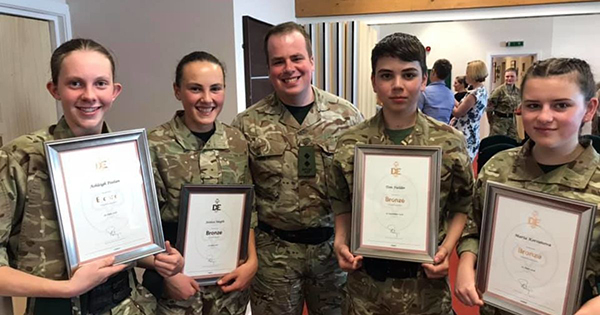
Oxfordshire Army Cadets hosted their yearly Duke of Edinburgh’s Awards Ceremony at Edward Brook Barracks in Abingdon, home of their Reserve supporting unit 7 RIFLES.
ONE FINAL THING
It is not a compulsory part of being a cadet that you must do your Duke of Edinburgh’s Award - but it is certainly worth it.
.


